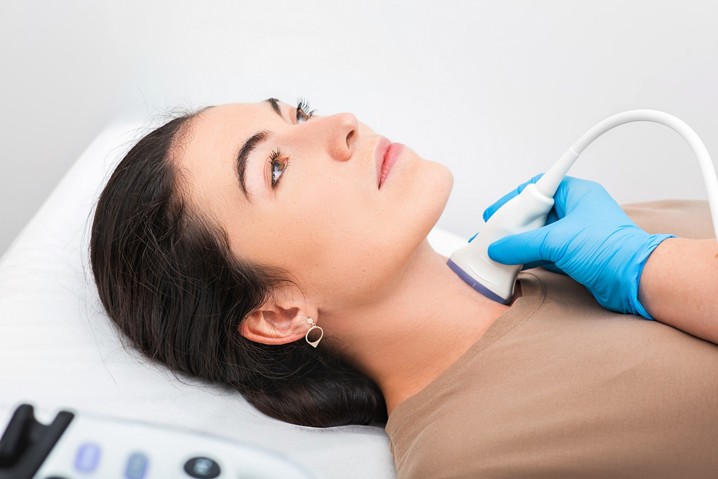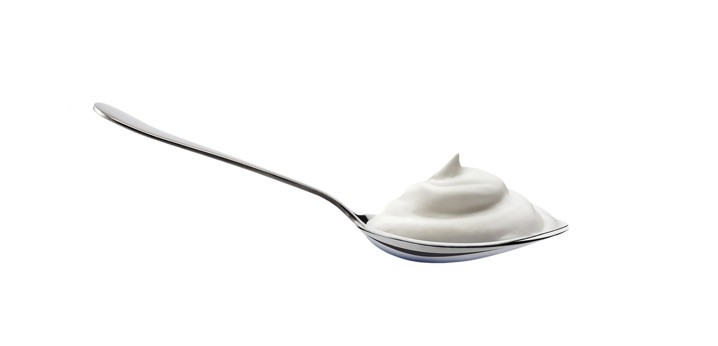

Get rid of life-threatening complications
Thyroid problems are not a rare occurrence and most problems can be solved with conservative treatment methods. However, in some cases, thyroid surgery is the best, or even the only solution.
However, thanks to the development of medicine and technology, thyroid surgery is now considered a routine and effective procedure with rare complications.
The thyroid gland is a gland located on the front of the neck, and due to its two lobes, it resembles a butterfly in shape. It is about 5cm in size, which makes it considered the largest endocrine gland in the human body.
When a gland is classified under the category of endocrine glands, it means that its hormones are secreted directly into the body’s bloodstream. In the case of the thyroid gland, these are the hormones T3 and T4, whose role is to maintain the functioning of the metabolic system.
Body temperature, respiratory rate and heart rate, biological clock or intestinal peristalsis are just some of the many metabolic functions that are performed under the control of the thyroid gland.
The secretion of thyroid hormones is of great importance for the proper functioning of the central nervous system, and disorders in the functioning of the gland can seriously jeopardize your health.
The thyroid gland controls the work and speed of your body’s entire metabolism. It does this by secreting the hormones triiodine (T3) and thyroxine (T4) directly into the blood.
However, in order for the thyroid gland to perform its function properly, it needs the help of the pituitary gland. Once it recognizes a malfunctioning thyroid, the pituitary gland secretes the hormone thyrotropin (TSH). This hormone stimulates the thyroid gland to work faster or slower, depending on the circumstances of the body’s behavior.
Slower thyroid function is also known as hypothyroidism, and you can recognize it by symptoms such as weight gain, fatigue, slow talking, slower heart rate, muscle pain, constipation, increased tendency to depression, mood and memory disorders, etc.
A completely opposite reaction occurs in hyperthyroidism. In this disorder, the thyroid gland secretes too many hormones T3 and T4 and its work is intensified. Low amounts of TSH are normal in this situation because the pituitary gland does everything to slow down the thyroid gland.
In the case of hyperthyroidism, you may notice symptoms such as rapid heartbeat, hair loss, hyperactivity, insomnia, weight loss despite increased appetite, menstrual cycle disorders, decreased libido, frequent bowel movements and urination, etc.
In addition to disorders in the speed of the thyroid gland, iodine deficiency in the body can also cause poor gland function. Namely, iodine is a basic element needed for the proper synthesis of thyroid hormones, and a reduced amount can result in goiter.
Goiter, or goiter, is a term used for an enlarged thyroid. An enlarged thyroid usually does not cause major disturbances in the body, but it can cause a feeling of pressure in the throat, difficulty breathing and swallowing.
The causative agents of these disorders can be various diseases:
It occurs due to disorders of the immune system and genetic predisposition. More often it causes hypothyroidism, although hyperthyroidism is not excluded either.
Autoimmune diseases that cause hyperthyroidism.
Thyroid diseases are more common in women.
Thyroid disorders are most often treated with the use of various medications or the consumption of hormones. Thus, for example, hypothyroidism is treated for life with levothyroxine, a thyroid hormone produced.
Hyperthyroidism can also be treated by slowing the thyroid gland with medications, such as beta blockers or thyrostatic drugs. However, if the case is extreme, surgery is the best solution.
Thyroid surgery is performed:
If you notice some of the above symptoms, making an appointment for an examination is the best solution to establish a diagnosis and give appropriate therapy.
At the Lohuis Filipović Polyclinic , we perform a series of diagnostic examinations such as:
Based on your blood count, we observe any abnormalities in the amount of hormones T3 and T4 and TSH. With an excess or deficiency of some of these hormones, we can easily come to the conclusion of which disorder it is.
With ultrasound, we try to examine the thyroid gland in detail, enlarged parathyroid glands and nodules on the neck that could indicate malignant diseases.

By taking a sample of the thyroid, parathyroid gland and lymph nodes with a needle, we microscopically and chemically examine the tissue/cells to reveal the right diagnosis. The examination is performed under ultrasound control, and a sample is taken with short needle punctures.
After the examinations, we conduct consultations where we give you guidelines and precautions that you must follow before and after the procedure.
In order for the procedure to pass with as few complications as possible, it is necessary:
The reason for this is the use of general anesthesia, which can sometimes irritate the vomiting reflex.
Tablets such as Aspirin or Andol can cause increased bleeding due to difficulty clotting.
This information is of great importance to us in making the final decision to carry out the operation.
Be sure to inform us about possible allergies to anesthesia or materials used during surgery, such as latex.
Before the operation, come with an escort, because the effect of general anesthesia is present even a few hours after you wake up. Therefore, driving a vehicle of any kind is not recommended.
Your health is our priority, so we try to provide you with as clear instructions as possible that will speed up your recovery and prevent complications once you leave our office.
Upon arrival at the operating room, you will be placed on the operating table, after which the anesthesiologist will “put you to sleep” with general anesthesia. During the operation, he will observe your vital functions and other parameters relevant to the operation.
Once you sink into an unconscious state, a tube is placed in your airways so that you can breathe normally.
Once you are fully prepared for the operation, the head and neck surgeon takes the initiative.
The surgeon begins the operation with an incision in the neck, and the size of the incision depends on the size of the tissue to be removed. Once the opening is made, the surgeon removes one or both lobes of the thyroid gland.
After removal, the surgeon closes the wound, and the anesthesiologist then wakes you up.
Depending on the size of the thyroid gland, possible complications and the severity of the procedure, the operation can last between 45 minutes and 3 hours.
But, we repeat, the operation is painless because it is performed under general anesthesia, which means that you will not even remember the operation.
After the operation, you will most likely not remember the first hour. This is a normal side effect of the action of general anesthesia.
After the procedure, you may feel pain in your neck, which is why you should try to avoid quick jerks or throwing your head back.
Mild pain and discomfort when swallowing are also normal side effects, and they occur due to the inserted tube and other tools for surgery. These problems disappear within 24-48 hours after surgery.
To avoid the accumulation of fluids at the sites of incisions and removed tissue, a drain with a small bottle is placed at the very end of the opening. This drainage will be with you for one to three days after the procedure, and it is removed when the amount of fluid in the bottle is minimal.
After a week, you remove the stitches, and full recovery will occur after a few weeks.
You should not expose the scar after the surgery to the sun for at least 6 months, and if you are exposed, be sure to apply creams with UV protection.
After the procedure, we will make an appointment for several examinations to observe your recovery and health condition, but also to make a plan for replacement therapy (you no longer have a thyroid gland that secreted the necessary hormones).
Complications, as in any procedure, are not excluded. However, if the surgery is performed correctly and if you follow the instructions we have given you, the complications will be minimal.
Serious complications are rare and occur in only 2% of cases.
This nerve passes through the thyroid gland, and in the event that the surgeon accidentally cut one of the nerves, a more obvious symptom will be hoarseness.
If both nerves are cut, the symptoms are shortness of breath and a feeling of suffocation, sometimes it is necessary to make an opening in the trachea – tracheotomy.
The thyroid glands are responsible for regulating calcium in the body. In the case of their injury, calcium synthesis can be impaired, and the most common symptoms are tingling on the face, legs and arms, and muscle cramps.
As a result of this injury, you may have to spend a lifetime of calcium replacement therapy, although most often the calcium disorder is transient, and recovery follows in a few weeks.
Heavy bleeding after the procedure is a serious complication and will require immediate surgical opening of the operated area and stopping the bleeding.
If you have trouble swallowing, we recommend consuming soft foods and liquids, such as yogurt, pudding, ice cream or oatmeal.

You can eat this until you feel comfortable consuming the food you eat regularly again.
It is difficult to say if we have a team of the best surgeons for thyroid surgery. However, what we can certainly agree with is that at the Lohuis Filipović Polyclinic we do our job from beginning to end, in the hope that we will change your life for the better.
Our team of otorhinolaryngologists/neck and head surgeons and anesthesiologists has been collaborating for some time in the treatment of the most common health disorders that you come to our office with.
Thyroid surgery is just one of the many procedures we have taken care of, and our clients come back to us with pleasure, but only for check-ups.
If you notice that your thyroid suffers more than it can handle, make an appointment today! Call +3851 2444 646 or fill out our online form.
The main goal of LF Polyclinic is to improve the quality of life and health of our clients by providing them with top-notch healthcare services.